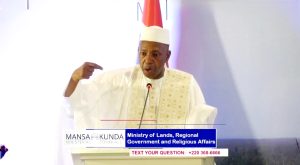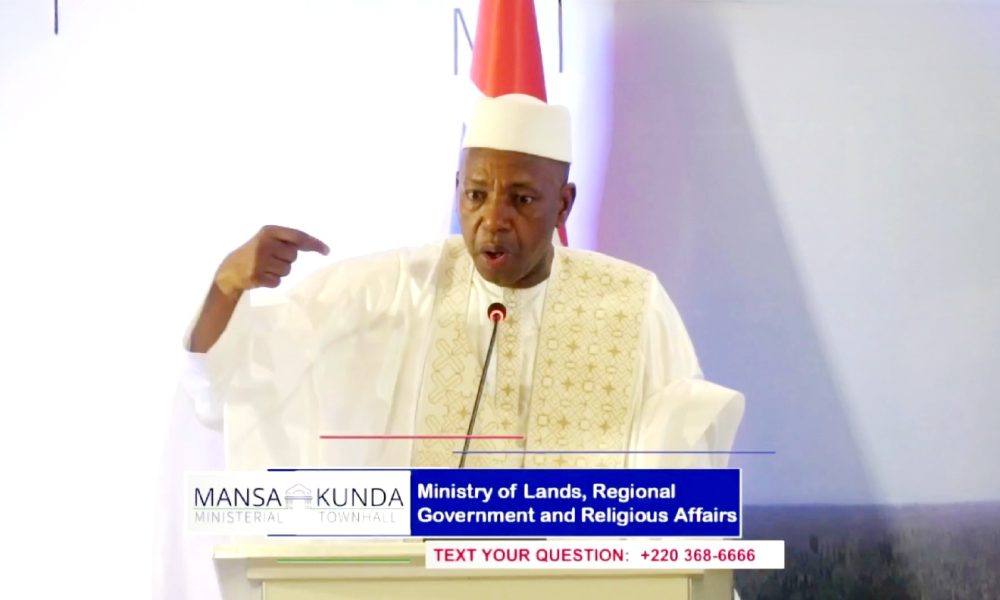Gambia’s Minister for Local Government, Lands and Religious Affairs, Ahmad NK Bah, has announced that the government is finalizing national Hajj policy aimed at regulating the pilgrimage to Mecca and shielding pilgrims from exploitation.
Speaking Friday evening at the Mansa Kunda Ministerial Town-Hall held at the Sir Dawda Kairaba Jawara International Conference Center in Bijilo, Minister Bah said the new policy is intended to make Hajj more accessible and affordable for all Gambian Muslims. He described the current situation as lacking structure and oversight.
“We inherited a system where there was no Hajj policy,” Bah said. “Things were happening left, right and centre.”
He strongly condemned the commercialisation of the pilgrimage, saying Hajj “cannot be a business enterprise for ricking of profits” off the back of people’s religious devotion.
One of the major concerns, he said, was the absence of a standardised package for pilgrims. In previous years, a few individuals reportedly flew business class while most pilgrims were charged excessive fees for basic arrangements.
To address this, Bah said his ministry, along with members of the National Assembly, conducted an inspection of facilities in Saudi Arabia. Based on those findings, the government plans to introduce a fixed Hajj package price. According to him, the inspection revealed that current costs are $220 lower than what Gambians were previously charged.
The minister also established a committee including his permanent secretary and several lawmakers to investigate Hajj operations. The committee examined the profit margins of agencies involved in the process and reported significant irregularities.
Bah expressed concern that without proper government oversight, only the wealthy would be able to perform the pilgrimage. “Some people farm for five years, sell their land or livestock, or rely on their children just to go on Hajj only to fall victim to people who talk about VIP,” he said.
He noted that the lack of coordination in previous Hajj seasons left pilgrims scattered across different hotels, making it difficult for Gambian medical teams to reach them. The government, he stressed, has a responsibility to manage the process better.
On the issue of air transport, Bah defended the government’s decision to designate Gambia International Airlines (GIA) as the official carrier for Hajj, saying the company employed over 400 Gambians and had proven itself during the 2025 Hajj.

“GIA achieved 100 percent success this year despite the noise on social media,” he said. “I will never support anything that would kill GIA just to satisfy a few individuals.”
The minister said the new Hajj policy is now in an advanced stage and awaiting final validation. He pledged that price gouging and exploitation around the pilgrimage will be firmly addressed going forward.





